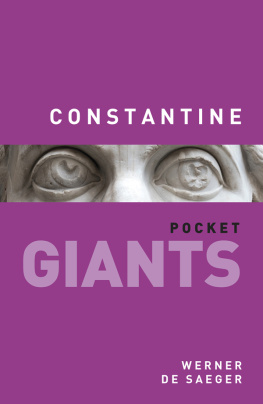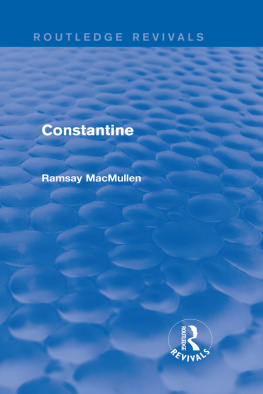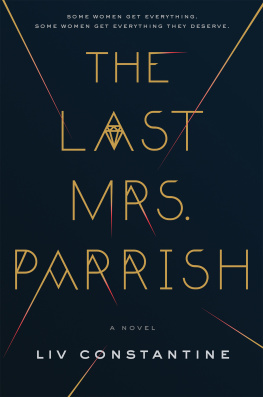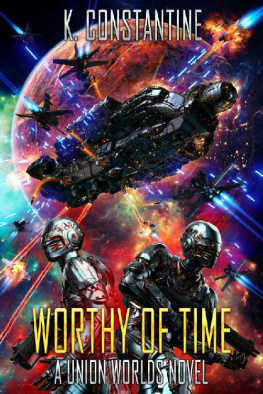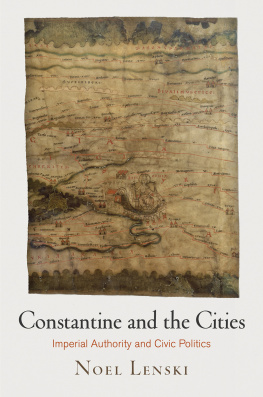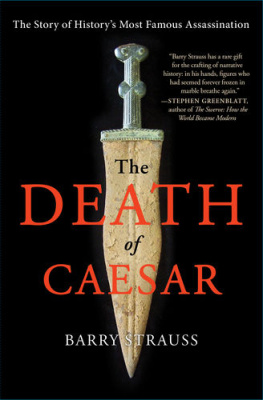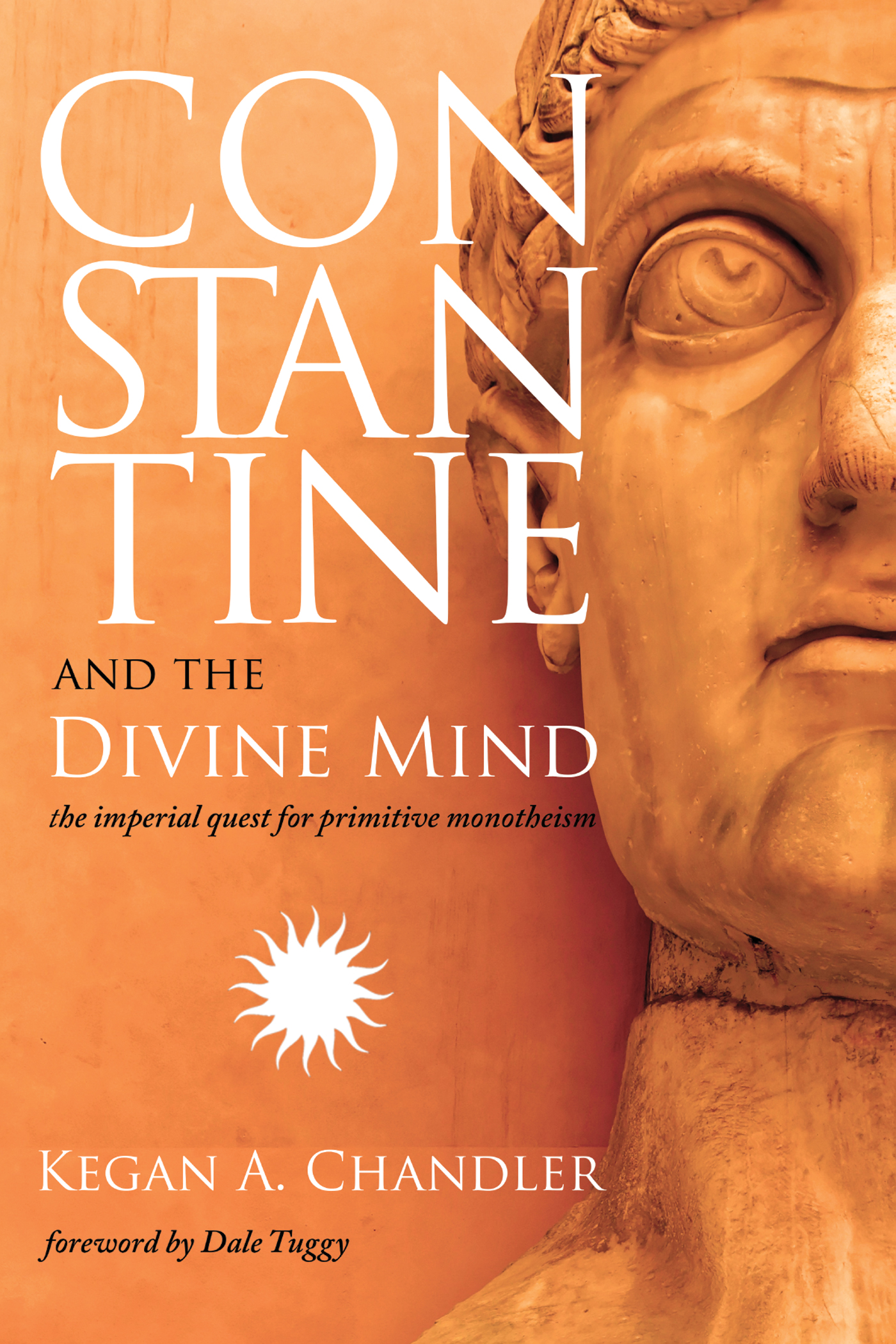Kegan A. Chandler
glimmer some faint sparks of monotheism.
Foreword
T he motivations underlying the emperor Constantines religious actions have long been in dispute. The famous church historian Eusebius praised Constantine as outstanding in every virtue godliness confers, Not many historians have been so generous in their estimation of Constantine, though many have imitated Eusebiuss extremity and one-sidedness. Following cues from some modern historians, popular literature and recent conspiracy theories paint Constantine as a cynical, power-mad tyrant, eager to exploit religion and religious disputes to enhance his own power. But many thoughtful inquirers have likewise puzzled over his post-conversion interest in the sun god, and some have questioned whether he truly converted to Christianity at all. Still others have determined to counteract modern cynicism about the emperors motives, restoring his reputation as a faithful defender and promoter of catholic orthodoxy. Was Constantine a politically mighty imitator of Jesus? A Stalin in saints clothing? Or is the mark he left on history doomed to be a Rorschach blotch, the interpretation of which only reveals something about the interpreter?
In this important and illuminating new study, Kegan Chandler aims to paint a clearer picture of Constantines religion by engaging the mystery of his conversion in light of trends in late Roman paganism. He treats Constantine as an educated man of his time who adopted a sophisticated outlook on religious diversity and understood Christianity in light of this general framework. Chandler builds on some recent studies which take seriously Constantines pagan background and the views of his adviser (and possible teacher) the apologist Lactantius. This emperor had what we can loosely call a Messiah complex, but this was grounded in a coherent worldview. This distinctive religious outlook, so different from the ones at work in our day, explains Constantines initially puzzling mix of pro-Christian and pro-pagan actions. It explains how this emperor could both involve himself in the formulation of orthodox Christian theology and also depict himself on coins and statuary in the garb of the sun god. Chandler employs recent scholarly advances on pagan monotheism, late Roman religion, Roman archeology, the Hermetic writings, religious conversion, the history of Christian theology, and alternate conceptions of godhood and of religious pluralism to shine an invincible sun onto the complexities of religious thought in Constantines pagan-Christian context.
The light of this multifaceted evidence reflects from the stage to illuminate the actor. We get a nuanced and sympathetic account of a genuinely religious Constantine pursuing what Chandler calls his dream. Its a page-turning story of considerable human, historical, theological, and philosophical interest, and it should supersede the many simpler, fictitious, and ideologically-driven versions of what Constantine was up to.
Dale Tuggy
White House, Tennessee
2019
. Eusebius, The Church History , ., tr. Paul Maier (Grand Rapids: Kregal Publications, 1999 ), .
. Eusebius, Oration in Praise of Constantine , , tr. Arthur C. McGiffert in Nicene and Post Nicene Fathers , Vol. (Oxford: Parker and Company, 1890 ), .
Preface
A s I write these words I am visiting the Eternal City in the wake of her first snowfall in six years. Her white-capped monuments have now thawed; her snowy streets have warmed in the swell of early springonly the cold air remains. This morning it occurred to me that the glory of Rome has also melted away, and long ago, leaving only memories. And yet her genius, now a departed spirit, has by no means lost its power to intrigue and inspire. These memories and monuments still have much to tell us, it turns out, not only about the history of Western civilization, but about our modern religious world.
The Arch of Constantine, still standing proudly in Colosseum valley and covered in its famous patchwork of pagan imagery, perhaps marks a turning point in Western religious history more poignantly than any other. It commemorates Constantines victory over his rival Maxentiusa victory without which the Christian religion might never have ascended in the West. Indeed, Constantine is remembered as Romes first Christian emperor, and as the man whose reign permanently legalized the faith. The inscription on Constantines arch tells us that he had been a man divinely inspired but by which god? The Christian God? On the archs eastern frieze we see the pagan sun deity Sol Invictus driving his solar chariot across the universe. But this monument was completed several years after Constantine reportedly converted to Christianity. What are we to make of all this?
Constantines turn to the Christian faithwhy it took place and whether it took place at allhas regularly challenged historians. Indeed, the importance of this topic is only surpassed by its difficulty. I nevertheless believe that a clearer picture can be drawn of Constantines conversion, and his mysterious reasons for it, than what has heretofore been achieved. While most books on Constantine have been more biographical or have emphasized his military career, political rivalries, or familial relationships, this study is dedicated to making sense of Constantine as a theologian, and to exploring the theological motivations behind both his conversion and his reign. Many have gone before me, of course, and I admit to only standing on giants shoulders and looking behind us at the patterns forming in the trail. And while I trust that I have several things to add to the ongoing discussion about Constantines religion, my sincere hope is that my modest contribution be only a useful spark stimulating further illumination.
I would be remiss not to mention the range of debts Ive incurred while producing this book. Special thanks are owed to Dr. Joseph Early for his support of the project; to Dr. John Hurtgen of Campbellsville University for his grace and encouragement during my studies; to Dr. Pier Franco Beatrice of the University of Padua for his inspiring scholarship and the helpful article he sent my way; to Dr. Elizabeth Digeser of the University of California for her invaluable work on Lactantius, to Sir Anthony Buzzard, Seth Ross, Atlanta Bible College, and Jeff Grant for their generous sponsorship of my research; to Dr. Dale Tuggy for his many helpful recommendations and his important article on monotheism; to Menashe Israel, Brandon Duke, and Andrew Davis for their diligent reviews of the manuscript; and above all, to my wife Lauren, to whom this book is dedicated, for her good spirit, strength, and eternal support. My love is with you all.
Kegan A. Chandler
Rome, Italy
2019
CONSTANTINE AND THE DIVINE MIND
The Imperial Quest for Primitive Monotheism
Copyright 2019 Kegan A. Chandler. All rights reserved. Except for brief quotations in critical publications or reviews, no part of this book may be reproduced in any manner without prior written permission from the publisher. Write: Permissions, Wipf and Stock Publishers, W. th Ave., Suite , Eugene, OR 97401 .


